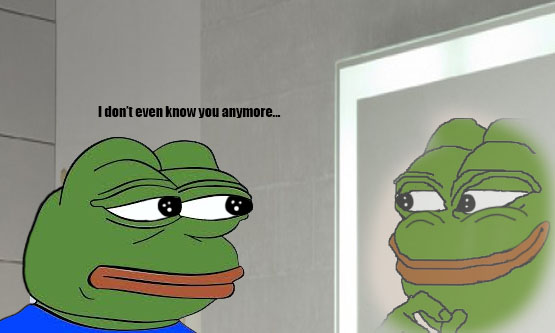
(Image from: https://assets.pando.com/uploads/2014/02/lazy-people-walle.jpg)
It seems that in this digital age and culture, nothing can escape from the reliance of technology. In our daily lives, we’ve come into contact with technology, one way or another. Think about it, to start off, most of us own a smartphone and a Desktop/Laptop which we habitually check every morning, we use a microwave to heat up our breakfast, we tap our cards on the machine while we board a bus, and the list goes on and on…
This reliance on technology drags on into the corporate world, where businesses make use of the abundance of information and connections on the internet to their advantage. Perhaps it’s human’s defensive mechanism acting up, but individuals have a tendency to ‘investigate’ on a matter before they actually come into contact with it (Like googling up reviews of a restaurant before visiting). This applies similarly to corporations, especially when making new hires. They could easily search you up on Google, and in an instant, they know more about you than your neighbour next door.
Which brings me further to talk about the importance and strategies in developing a professional online identity. When we talk about ‘online identity’, we associate it with Facebook, Twitter, Instagram straight away. However, these platforms actually limit the substance of your professional profile.
Online job seekers should in fact fully develop their LinkedIn profile, as it’s the World’s Largest Professional Network. Headhunters from large corporations routinely searches LinkedIn for potential new hires that could bring in fresh perspectives and help further expand the business. The online applicant should include significant career milestones, skill sets and allow employers to know more about them (professionally). Additional useful tips to create effective online profile can be found on How to create effective and professional online profile. However i would like to point out this tip:

(Image from: http://www.dummies.com/how-to/content/how-to-create-effective-and-professional-online-pr.html)
This tip discourages applicants to look like jack of all trades, master of none. However, the last part of this saying – but better than master of one – is being left out. Although the qualifications may seem irrelevant to each other, the skills and disciplines attained from these qualifications are sure to work well hand-in-hand. With diverse set of experience and skills, it allows the applicant to be more effective at work. But just make sure you’re a better jack of the trades.
Next, it is crucial to own your own domain and a digital portfolio site. In this digital world and age, being more tech-savvy and connected online associates you to being more updated with the latest trends and strategies. Creating your own online portfolio site is especially important in creative industries, where employers decide whether to hire you based on website presentation. Here are a few sites that feature existing online portfolio sites: Awwwards and Cargo Collective. Awwwards actually allows job seekers to directly apply for jobs on the website itself with their online portfolio.

(Image from: http://www.awwwards.com/jobs/assistant-professor-multimedia-photography-design-syracuse-1.html)
Applicants could build their online identity by the activities they do online, such as making intelligent comments/posts on relevant industry websites. By doing so, applicants could build their own online reputation and attract attention of potential employers. A relevant case in point would be Max Woolf, who’ve built up a reputation with his comments on TechCrunch, attracting contacts from entrepreneurs in the industry. (Read about him more here: Max Woolf Blog)
Lastly, an article have pointed out not to fall into the ‘Facebook Fallacy’, where applicants vigorously build up their professional identity on Facebook. But in actual fact, no employers would specifically search Facebook for talents.
Many people have restricted the idea of online identity to the profiles you create on platforms, but in fact it extends to the activities you conduct online and of course, your real life experiences. The digital world offers endless possibilities and opportunities which stretches out as far as your creativity allow. You could also impress employers with an online resume that truly stands out from the crowd, like what Nina Mufleh did – creating a website resume with a template similar to Airbnb to present her ideas. (She got the job!)

(Image from: http://nextshark.com/nina-mufleh-airbnb-resume-brian-chesky/)
So, go ahead, make use of the digital world and expand your opportunities.
References:
PC World. 2013. 12 Ways to make your online profile work for you. [ONLINE] Available at: http://www.pcworld.com/article/250858/12_ways_to_make_your_online_profile_work_for_you.html. [Accessed 05 November 15].
The Marketing Donut. 2010. What should you include in a professional profile?. [ONLINE] Available at: http://www.marketingdonut.co.uk/marketing/online-marketing/social-media-and-online-networking/what-should-you-include-in-a-professional-profile-. [Accessed 05 November 15].
For Dummies. 2015. How to create effective and professional online profiles. [ONLINE] Available at: http://www.dummies.com/how-to/content/how-to-create-effective-and-professional-online-pr.html. [Accessed 05 November 15].
Dartmouth University. 2013. 6 steps to creating a professional profile. [ONLINE] Available at: http://www.dartmouth.edu/~csrc/docs/linkedin_howto.pdf. [Accessed 05 November 15].
Next Shark. 2015. This Woman’s Innovative ‘Resumé’ Thoroughly Impressed Airbnb’s CEO Read more at: http://nextshark.com/nina-mufleh-airbnb-resume-brian-chesky/#rmns. [ONLINE] Available at: http://nextshark.com/nina-mufleh-airbnb-resume-brian-chesky/. [Accessed 05 November 15].
Max Woolf. 2012. About. [ONLINE] Available at: http://minimaxir.com/about/. [Accessed 05 November 15].
Jobvite. 2014. How Employers are Recruiting. [ONLINE] Available at: https://www.jobvite.com/wp-content/uploads/2014/10/Jobvite_SocialRecruiting_Survey2014.pdf. [Accessed 05 November 15].
BBC News. 2013. Job Hunting: How to promote yourself online. [ONLINE] Available at: http://www.bbc.com/news/business-25217962. [Accessed 05 November 15].
Awwwards. 2015. Job Board. [ONLINE] Available at: http://www.awwwards.com/jobs/. [Accessed 05 November 15].





